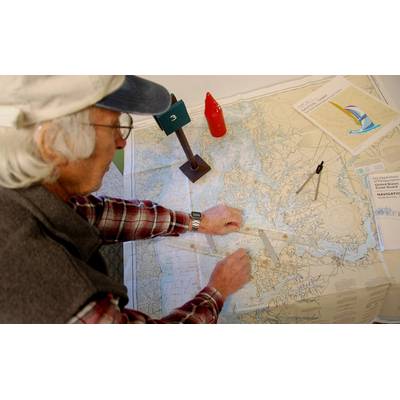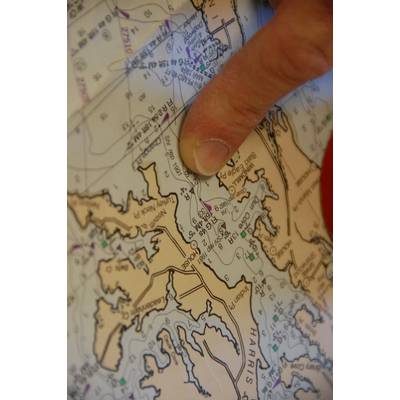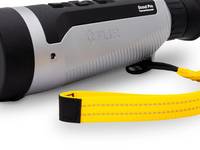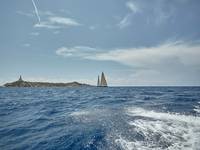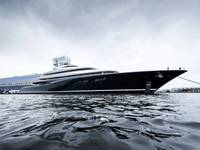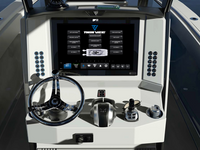Learn Chart Navigation in St. Michaels
The Chesapeake Bay Maritime Museum is offering a two-day chart navigation course which begins on Saturday, February 21 from 10-noon and concludes Sunday, February 22 from 1-3 p.m. Participation is limited, with pre-registration needed.
Led by Captain Jerry Friedman, a USCG-licensed Master, this course is designed to teach participants the necessary steps needed to plan a cruise using navigation charts, which includes plotting courses to safely pilot a boat from one place to another. Boaters interested in being more proficient in navigation will learn techniques to determine a boat’s location without the use of electronic aids.
The course will cover reading, identifying objects and plotting on a navigation chart; determining latitude and longitude to identify a boat’s location; using a compass rose, including the effects of deviation and variation; understanding the rules of the “road” on the water; identifying navigation aids, such as buoys, lights, daymarks, and ranges; and other instruction on planning a cruise.
A retired electrical engineering executive, Friedman has held a USCG captain’s license for more than 56 years. During that time, he also operated an emergency service towboat for BoatUS, assisting boaters along the Chesapeake Bay in distress, delivering boats, and teaching navigation courses. He currently holds a 100-ton Master’s license and serves as the volunteer lead captain of CBMM’s 1920 buy boat Winnie Estelle.
The program takes place in the museum’s Dorchester House and is $25 for CBMM members or $35 for non-members, with pre-registration needed by emailing CBMM Boatyard Program Manager Jenn Kuhn at [email protected] or calling 410-745-4980.


